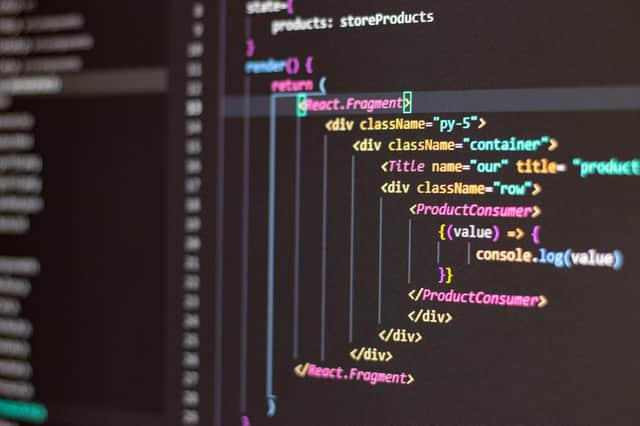Public should allow the use of their healthcare data for the greater good – Professor Fiona Gilbert


Explaining that it is simply not possible to create these tools without the images, I tried to provide justification and waited anxiously to see if my comments would be included, but alas the programme never aired.
The pandemic struck and suddenly something became very clear: we need data to make decisions. Specifically, we needed healthcare data to feed models and inform good policy decisions.
Advertisement
Hide AdAdvertisement
Hide AdData provided the cornerstone in analysing how many Covid cases were tolerable without overwhelming the NHS. This national data integration, together with an amazing collaborative effort, became imperative to our response.
Over the past 16 months, my department at Cambridge University has seen first-hand the power data yields. Using pseudonymised data, we worked to develop and test an AI tool aimed at predicting oxygen requirements needed in medical settings 24 and 72 hours in advance.
The implications of such a tool are significant, as pre-empting oxygen needs decreases the likelihood of being overwhelmed by demand. Akin to the algorithmic pace, the speed this research gained approval and established international links – with minimal governance or contracts – helped the innovation enormously.
Other AI tools like those to detect fractures, lung cancer, brain haemorrhage and strokes are in development. This ability to have AI robustly and reliably diagnosing means NHS capacity could be increased, manpower released to undertake clinical tasks and potentially save more lives.
Opportunities for novel developments like this are recognised by both the UK government and NHS. By facilitating the integration of patient data from various medical sources, algorithms can provide insight to inform better policy. In future, this type of data-led approach could help predict medicine shortages or those who will develop cancer.
Over the summer, the UK government consulted on their ‘Data saves lives: reshaping health and social care with data’ strategy. Highlighting the benefits data delivered by informing our Covid response on safeguarding and treatment trials, the strategy signals a new direction of travel, one where streamlining our approach to data will allow us to better harness the power it holds.
Perhaps the producers of Panorama were right, and it was too soon to allow health data to be utilised by commercial companies, but academics and the NHS cannot develop these tools alone – we need commercialisation to fast-track these innovations. The underlying issue is a societal one: ensuring the safety and security of identifiable patient data. We need the public to permit us to use their data for public good.
Creating a machine to match the performance of our best radiologists is complex, but a truly transformative aspiration. The more we are allowed to integrate data from different sources, collaborate with private sector partnerships, and given the space needed to innovate, the faster academics can get on with making those transformative goals a reality.
Advertisement
Hide AdAdvertisement
Hide AdProfessor Fiona Gilbert is head of the radiology department at Cambridge University, honorary consultant radiologist at Addenbrooke’s Hospital, Cambridge, and a fellow of the Royal Society of Edinburgh. The RSE is Scotland's national academy, bringing great minds together to contribute to social, cultural and economic well-being. Find out more at rse.org.uk.
A message from the Editor:
Thank you for reading this article. We're more reliant on your support than ever as the shift in consumer habits brought about by coronavirus impacts our advertisers.
If you haven't already, please consider supporting our trusted, fact-checked journalism by taking out a digital subscription.
Comments
Want to join the conversation? Please or to comment on this article.
